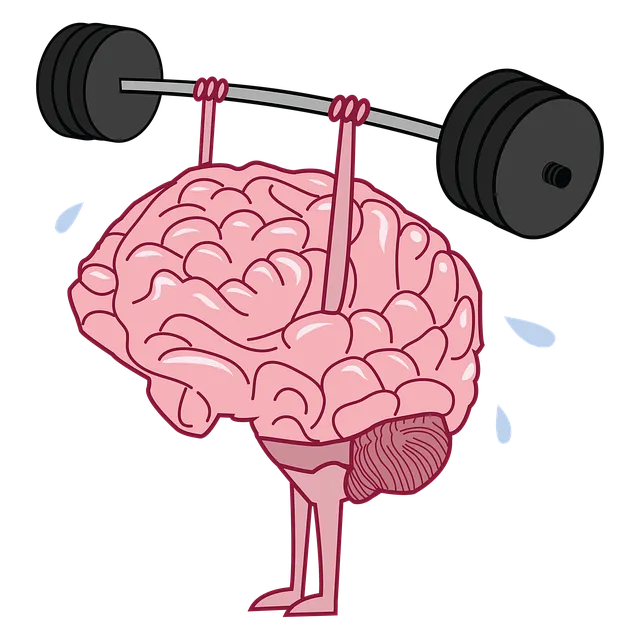Kaiser Permanente's training programs in Denver prioritize risk assessment and harm minimization through comprehensive strategies. These include analyzing environmental hazards, patient/staff safety protocols, cultural factors, and integrating holistic practices like Mindfulness Meditation and Mental Health Awareness. Their approach equips healthcare providers with skills to identify and mitigate risks, fostering a safer environment for patients and staff. By combining education, innovative practices, and continuous improvement, these programs enhance patient care, resilience, and overall well-being in Denver's healthcare settings.
Risk assessment and harm minimization planning are essential components of modern healthcare, crucial for ensuring patient safety and quality care. This article explores these concepts through a comprehensive lens, drawing insights from Kaiser Permanente Denver’s pioneering training programs. We’ll delve into the key components of a robust harm minimization plan, practical implementation strategies tailored for healthcare settings, and methods to measure success in risk management. Understanding these principles is a testament to our commitment to enhancing patient outcomes.
- Understanding Risk Assessment: A Foundation for Harm Minimization
- Kaiser Permanente Denver's Approach to Training Programs
- Key Components of a Comprehensive Harm Minimization Plan
- Practical Implementation Strategies in Healthcare Settings
- Measuring Success and Continuous Improvement in Risk Management
Understanding Risk Assessment: A Foundation for Harm Minimization

Risk assessment is a fundamental process that forms the bedrock of any comprehensive harm minimization strategy. It involves meticulous analysis and evaluation to identify potential hazards and risks within various settings, including healthcare organizations like Kaiser Permanente training programs in Denver. By understanding and assessing these risks, professionals can implement effective mitigation measures, ensuring the well-being and safety of patients, staff, and the community at large.
This process requires a systematic approach, considering both external factors and internal organizational policies. It encompasses identifying hazards, analyzing their likelihood and potential impact, and prioritizing risks to guide decision-making. Kaiser Permanente’s training programs in Denver, for instance, emphasize the importance of risk assessment as a proactive measure, enabling healthcare providers to deliver high-quality care while minimizing potential harms. Incorporating practices like Mindfulness Meditation, Mental Health Awareness, and Compassion Cultivation can further enhance this process by fostering a culture of resilience and empathetic patient care.
Kaiser Permanente Denver's Approach to Training Programs

Kaiser Permanente Denver takes a comprehensive approach to training programs, prioritizing risk assessment and harm minimization at every step. Their programs are meticulously designed to foster self-care practices and compassion cultivation among their workforce, recognizing that mental health is integral to overall well-being. The healthcare provider incorporates robust Mental Health Education Programs that equip employees with the knowledge and skills to identify and address potential risks within their interactions with patients.
This Denver-based organization’s commitment extends beyond educational initiatives. They actively integrate innovative practices into their training curriculum, emphasizing a holistic approach to care. By promoting compassion cultivation, Kaiser Permanente Denver aims to enhance patient experiences while also supporting the mental health and resilience of their staff, ensuring a safe and supportive work environment.
Key Components of a Comprehensive Harm Minimization Plan

A comprehensive harm minimization plan, as part of risk assessment strategies, is a crucial tool for professionals in healthcare, especially within organizations like Kaiser Permanente training programs Denver. This plan should encompass several key components to effectively identify and mitigate potential risks that may cause harm to patients or staff. Firstly, it involves a thorough risk identification process, which includes assessing environmental hazards, evaluating patient and employee safety protocols, and considering the impact of cultural factors on health outcomes. For instance, addressing Cultural Sensitivity in Mental Healthcare Practice can significantly enhance patient care and reduce potential harms related to miscommunication.
Additionally, emotional intelligence and the ability to manage anxiety should be integrated into the plan. Promoting Emotional Intelligence among staff enables them to recognize and respond appropriately to individual needs, thereby reducing triggers for anxiety or distress. Anxiety Relief techniques can also be incorporated, ensuring that both patients and healthcare providers have access to tools and resources to navigate and mitigate stress-related risks. Such measures contribute to creating a safer, more supportive environment within healthcare settings.
Practical Implementation Strategies in Healthcare Settings

Implementing effective risk assessment and harm minimization strategies in healthcare settings requires a structured approach. Kaiser Permanente training programs Denver offer valuable insights into this process, emphasizing practical steps for healthcare providers. These programs facilitate a comprehensive understanding of patient safety, encouraging professionals to proactively identify and mitigate risks associated with various medical procedures. By participating in these initiatives, healthcare staff gain the skills needed to conduct thorough risk assessments, implement harm-reduction techniques, and foster an environment that prioritizes patient well-being.
The Mental Health Policy Analysis and Advocacy plays a pivotal role in this context, guiding institutions to develop tailored strategies for managing risks specific to mental health care. Stress Management Workshops Organization, another key component, equips healthcare providers with tools to handle stress and improve mood management, thereby enhancing their ability to deliver quality patient care. These programs contribute to the overall goal of minimizing adverse events and promoting positive patient outcomes in healthcare settings.
Measuring Success and Continuous Improvement in Risk Management

Measuring success and fostering continuous improvement are vital components of effective risk management within healthcare organizations, including those that participate in Kaiser Permanente training programs Denver. By setting clear goals and implementing structured assessment techniques, mental health professionals can enhance their Risk Management Planning for Mental Health Professionals. Regularly evaluating outcomes against established benchmarks enables practitioners to identify areas where they excel and aspects that require refinement, ultimately driving better patient care.
The process involves integrating diverse data sources—from patient feedback to clinical outcomes—to gauge the effectiveness of implemented risk assessment strategies. This holistic approach ensures that Stress Management is not merely a theoretical concept but a practical reality, allowing for adaptive adjustments in methodologies as new insights emerge. Continuous improvement aligns with the evolving nature of mental health care and encourages professionals to stay abreast of best practices within their field.
Risk assessment and harm minimization planning are essential components of modern healthcare, as highlighted by Kaiser Permanente’s innovative training programs in Denver. By understanding risk assessment as a foundational step, healthcare facilities can develop comprehensive plans that incorporate key strategies for implementation and continuous improvement. These efforts not only enhance patient safety but also foster a culture of proactive harm prevention within healthcare settings. With practical implementation guided by successful models like Kaiser Permanente Denver, the healthcare industry can revolutionize its approach to managing risks and minimizing potential harms.






